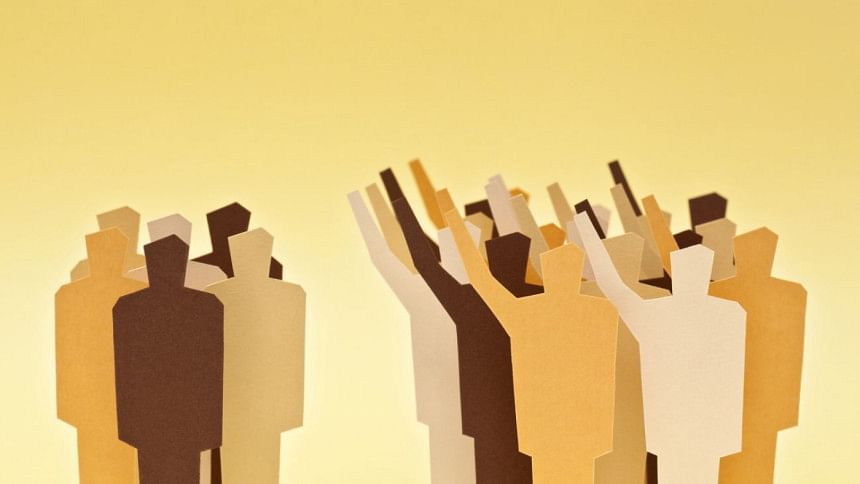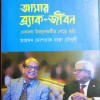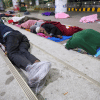We need inclusive development

Watching TV talk shows nowadays has become tantamount to listening to people trumpeting development projects taken or being taken by the government. The scale of development that we have seen over the past decade is praiseworthy, to say the least, but many tend to use it to advance their personal and political interests. One cannot help but notice that development is evident especially in areas such as energy, infrastructure and information technology. That people want development has never been a bone of contention either. What seems to be the problem is how we frame the development narrative and to what extent can "development" be allowed to encroach on other areas of public interest.
Currently, some well-worn phrases like "development and democracy" are seen to circulate in TV talk shows, public processions, rallies, in tea stalls and so on. In my view, the kernel of the argument is "development at the expense of what?" I think when we talk about democracy, our view is generally shaped by what the West means by it—a group of leaders elected by their citizens, leaders accountable to various organs of the state, rule of law, independent media, freedom of expression, transparency, and so on and so forth.
The magic of democracy is the people's ability to choose their own leaders through vote, the one feature that makes democracy so unique and unbeatable. But can a mere voting exercise change everything? Can we still attribute our problems such as corruption, political turmoil, money laundering, extrajudicial killings, enforced disappearance, muzzling dissenting voices that we have had in Bangladesh since our independence to the British colonial empire or the Pakistani rule?
What signal does it send to the rest of the world when someone who talks about rule of law or points out to our societal issues is told to look at the development taking place in the country and basically forget about everything else? What signal does it send to the foreign investors when they get to know that the rule of law is taken for granted here, and the legal system, in some cases, favours the powerful? Is development-minus-democracy what we want? We may have been able to attract a certain amount of FDI (Foreign Direct Investment) but not to the extent that we should have.
The FDI flow is also dwindling, which is evident from the data shown by UNCTAD where FDI Inward Flow to Bangladesh in 2015 was USD 2,235 million, which saw a slight increase in 2016 (USD 2,333 million) before it went down in 2017 (USD 2,152 million). Another aspect that runs counter to our existing development narrative is World Bank's 2018 Doing Business report in which Bangladesh ranked 177th out of the total 190 countries. Beyond a handful of countries that have long been our major partners like India, South Korea, China and Japan, are we even trying to garner support from other developed countries that could help boost our economy?
Then, what value does our particular brand of development hold for those who lost money in the last share market scam? Why have the masterminds behind this scam not been identified and brought to justice? When we let criminals of any type get off scot-free, we must keep in mind that it sets a dangerous example before the young generation upon whom the future of our country depends. The youths growing up today are highly likely to develop a tendency to replicate what they are seeing unfolding before them—the law favouring certain classes, kowtowing to people in power, restricting the freedom of the media to unearth corruption and anomalies, etc.
If Bangladesh truly wants to be recognised as a model for development in the world, it has to be a model at the centre of which is the belief that all people are equal, whether in getting their share of development or other benefits of democracy. There should be no inequality and discrimination among people. The mere development rhetoric being churned out by the loyalists will not make Bangladesh a role model for the world. The ease and comfort with which they keep on promoting the one-sided narrative is disquieting, to say the least. But I want to believe that we can do better. Establishing equality and eliminating discrimination are possible, since development and democracy can go hand in hand if we are really sincere. All we need is a strong political will and commitment to that effect.
Saiful Islam is a student of political science at the University of Dhaka.










Comments